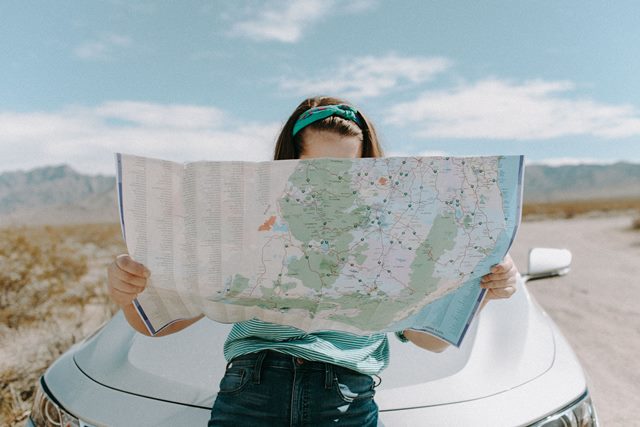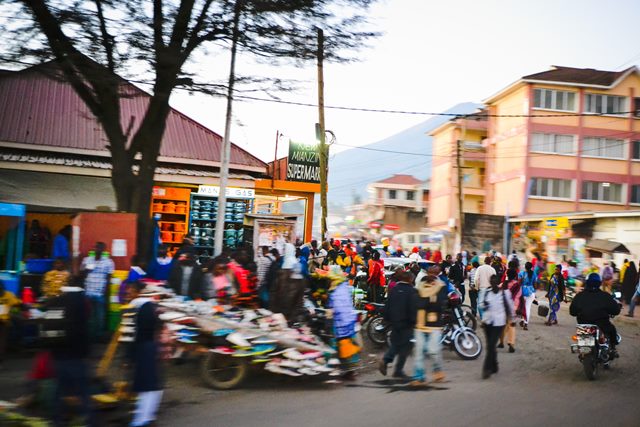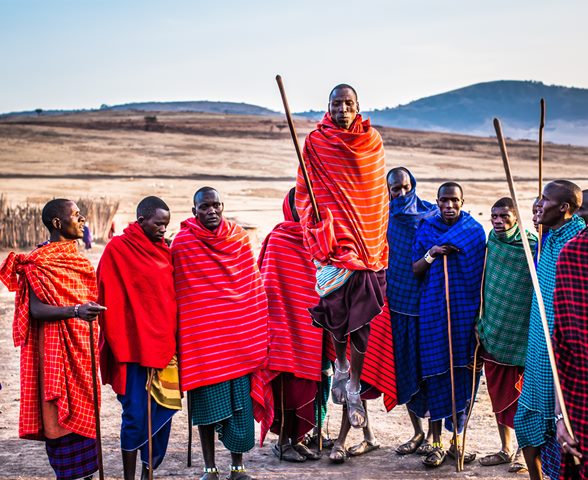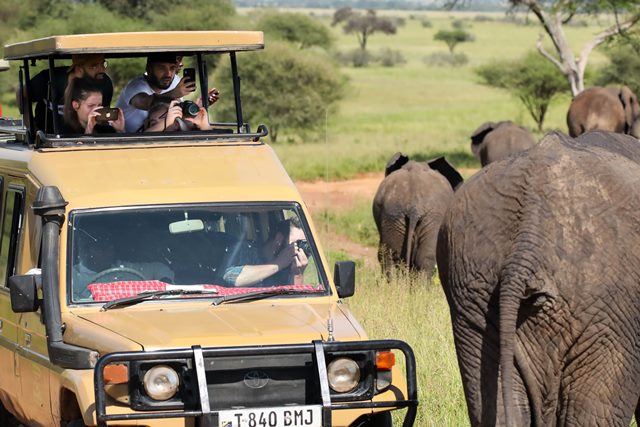Pack your bags and prepare for the journey of a lifetime! Africa is a continent with breathtaking scenery, vibrant cultures, and amazing wildlife. But lately, the African travel experience has been plagued with uncertainty due to warring regions and religious unrest.
However, not everywhere in Africa is at war. In fact, you’ll find numerous countries where it’s safe to travel to in Africa. Regardless, it’s still important to take necessary safety measures to ensure a safe and enjoyable trip.
To help you explore Africa with confidence and ease, we’ve put together this comprehensive guide filled with recommendations.
Our guide will give you all the insider information you need to have an unforgettable African travel experience, whether you’re organizing a solo trip or setting out on a group adventure.
Are you ready to explore?
Pre-Travel Planning Your African Travel Experience
A successful and safe trip to Africa begins with thorough pre-travel planning. You must adequately prepare for your trip to ensure that it is stress-free and enjoyable.
Whether you are planning to go on a safari in Kenya, discover Ethiopia’s rich cultural diversity, or see the magnificent Victoria Falls in Zimbabwe, there’s a need to chart your course.
To ensure that your trip to Africa goes smoothly, we’ll go over some important pre-travel planning advice below:

Research Your Destination
This applies to pretty much wherever you’re traveling to. You just need to do some research about the place before leaving your home. And, a bit of research on your African destination will go a long way before you travel.
Most people make the mistake of thinking Africa is just one massive country. Africa is a vast continent with various landscapes, cultures, and languages.
Every nation on the continent has its own unique attractions and difficulties. The history, geography, climate, customs, and laws of the nation, among other things, can all be better understood with thorough research.
You can use this information to help you decide on the best time to travel, the places to see, the right clothing to pack, and what to do or not to do.
For example, in specific regions in Ghana and Nigeria, the “thumbs up” sign could be interpreted as offensive or disrespectful.
Obtain Necessary Travel Documents and Vaccinations
Visitors need a valid passport and a visa to enter most African nations. To prevent problems at the last minute, you must apply for these documents far in advance.
Also, a health certificate or specific vaccinations may be required to enter some countries.
So, to ensure maximum effectiveness, consult a travel health expert to determine the required vaccinations and take them well in advance.
Choose an Appropriate Travel Insurance
When visiting Africa, having travel insurance is a necessity. It offers protection against unanticipated events like lost luggage, flight cancellations, and medical emergencies.
Make sure your travel insurance includes medical evacuation when purchasing it because some remote African locations may call for an air ambulance in an emergency.
Pack Essentials for an African Travel Experience
Depending on the activities you plan to do and the places you plan to go, packing for an African trip requires careful consideration.
We Design & Develop Websites, Android & iOS Apps
Looking to transform your digital presence? We specialize in creating stunning websites and powerful mobile apps for Android and iOS. Let us bring your vision to life with innovative, tailored solutions!
Get Started TodayPacking clothes that cover the arms and legs will help you avoid mosquitoes and other insects in the hot African climate.
Likewise, lightweight, breathable clothing is also advised. Your packing list should also include sunscreen, insect repellent, and a first aid kit.
Read: Exploring Africa’s Historical Sites: From Ancient Ruins to Colonial Architecture
Getting Around in Africa

Due to the continent’s size, diversity, and abundance of transportation options, getting around in Africa can be an experience in and of itself.
Therefore, understanding your transport options can be helpful for a safe and effective trip, regardless of whether you will travel independently or join a guided tour. Here, we will go over some navigational advice for traveling in Africa.
Understand the Transportation Options
There are many ways to get around in Africa, including buses, trains, taxis, and private vehicles. Every mode of transportation has advantages and disadvantages, so you’ll need to figure out the best one for your needs in light of your spending limit, planned route, and safety considerations.
Intercity bus travel might be dependable and economical in some nations while renting a car might be the best choice in others.
Tips for Renting a Vehicle and Driving in Africa
You can explore Africa at your own pace by renting a car, but it is important to think about safety issues before doing so.
Make sure the vehicle is in good shape, has the required safety equipment, and that you have the required insurance and driver’s license.
Due to the various road regulations, signage, and unfavorable road conditions, driving in Africa can also be difficult. So, drive defensively, be aware of other motorists, and steer clear of nighttime driving.
Choose Between Guided African Tours and Independent Travel
For people who have never been to Africa or want a more planned and hassle-free travel experience, guided tours can be an ideal option.
With a guided tour, you can benefit from a knowledgeable guide who can share insightful knowledge about the nation’s history, culture, and tourist attractions.
However, independent travel can also be rewarding because it allows you to go at your own pace and experience local culture.
Be Prepared for Delays and Cancelations
We don’t mean this as a stereotype, but many tourists have complained about the incessant delays and cancelations that happened during their time in Africa. So, you might want to prepare for that/
When traveling, you should allow extra time, have a backup plan in case of cancelations, and have the appropriate travel insurance to cover unforeseen costs.
But hey! Maybe a delay could help you explore more places. Who’s in a hurry anyway?
Staying Safe in Africa
We Design & Develop Websites, Android & iOS Apps
Looking to transform your digital presence? We specialize in creating stunning websites and powerful mobile apps for Android and iOS. Let us bring your vision to life with innovative, tailored solutions!
Get Started TodayJust like you would anywhere, it’s important to prioritize your safety during your African travel experience. Here are tips to take into consideration:
Research the Safety Risks of your African Travel Destination
Investigate the safety hazards of your travel destination before leaving. Most countries have safety guidelines and recommendations for each African country. So, it’s best to check those before traveling.
If you know people in the country, you might also want to ask as they have a good idea of the real situation. This is because your country may exaggerate the extent of an issue – but that’s just for your safety.
Safety issues like crime, terrorism, and natural disasters are particular to each country. Therefore, it is necessary to learn about these dangers and take the appropriate safety measures, such as avoiding dangerous areas, following a reliable guide, and keeping your valuables with you at all times.
Read: Tourism in Africa: Where Should Your Next Vacation Be?
Choose Safe Accommodations
Before making a reservation, check out a hotel, lodge, or guesthouse’s safety history. Consider staying at a hotel with strong security measures, such as CCTV cameras, armed security, and secure entrances.
Keeping your room locked and your valuables in a safe or locked luggage is also important. The location of the hotel or lodge is also vital. Is it generally safe? Are there any notable security risks to know? This will help you know where to stay during your African travel.
Stay Alert and Aware of your Surroundings
To stay safe in Africa, you must be vigilant and aware of your surroundings. Yes, the African travel experience can be immersive and breathtaking.
But be mindful of your environment, particularly in crowded places like markets, train stations, and bus terminals. Keep an eye on your possessions and keep pricey items like jewelry, cameras, and smartphones hidden.

Follow Local Customs and Laws
To stay safe in Africa, it is mandatory to respect regional laws and customs. Recognize regional customs, including dress codes, religious practices, and societal norms.
It is also necessary to be aware of local laws and to abstain from criminal behavior like drug use, theft, and prostitution. You need to respect local traditions just like you would want others to respect the traditions in your hometown.
For most Africans, these laws and customs are personal. Disrespecting them could cause big problems with the locals.
Take Precautions Against Diseases and Infections
Viruses like malaria, yellow fever, and HIV/AIDS are common in Africa. Therefore, it is essential to take the necessary precautions, such as receiving the required shots and taking antimalarial medication, before traveling.
You should also avoid drinking tap water, consume only cooked food, and maintain good hygiene by washing your hands frequently.
Cultural Considerations for Your African Travel Experience

We Design & Develop Websites, Android & iOS Apps
Looking to transform your digital presence? We specialize in creating stunning websites and powerful mobile apps for Android and iOS. Let us bring your vision to life with innovative, tailored solutions!
Get Started TodayThe cultural traditions of many African regions are held in the highest regard by the locals. They will not allow you to disrespect thousands of years of culture. So, you need to learn the basics and what to do.
Here are some tips:
Research the Culture of Your African Travel Destination
Do some research on the local culture before you go to Africa. Learn about the local people’s customs, traditions, and social norms. Understanding these cultural nuances can help avoid unintentionally offending or disrespecting the locals.
Dress Appropriately
Africans are big on appearance. So, you may want to dress appropriately, especially in North African countries like Egypt and Morocco where women are expected to wear modest clothing and head coverings. This mode of dressing is also important in places of worship.
Wearing traditional garb in other nations, like Ghana and Nigeria, can be a sign of respect. Therefore, it is best to learn the proper attire for your destination and pack appropriately.
Learn Some Local Phrases
Some African countries will appreciate you taking the time to learn local phrases and expressions. Of course, you’re not going to be a pro immediately, but the effort goes a long way in endearing yourself to the local community.
It can be a sign of respect to greet people in their native tongue, such as “Jambo” in Swahili, and to demonstrate your interest in their culture.
Respect Beliefs During Your African Travel
For instance, it is traditional to take off your shoes before entering a home or place of worship in many African nations. In some nations, using your left hand to eat or shake hands is also considered impolite.
Be Mindful of Cultural Differences
Recognize cultural differences and refrain from imposing your personal beliefs and values on others. For instance, punctuality may not be as valued in some African cultures as in Western cultures. Respecting these variations will help you to manage your expectations.
Accommodations for African Travel
The first step in choosing accommodations in Africa is to establish a budget. Many African nations have affordable lodging options like hostels and guesthouses, while well-known tourist areas have luxurious lodges and hotels.
Check out the area where your accommodations will be to ensure it is in a safe and secure area. Think about the amenities offered by your lodging. Read evaluations to gain important knowledge about the caliber of the lodging.
Consider regional choices like camping or homestays to provide a distinctive cultural experience and interact with locals.
Wildlife Encounters in Africa

The most important details for responsible wildlife encounters in Africa are to select reputable tour operators, observe animal rights, adhere to park rules and regulations, use a manual, consider the season, and use a guide.
We Design & Develop Websites, Android & iOS Apps
Looking to transform your digital presence? We specialize in creating stunning websites and powerful mobile apps for Android and iOS. Let us bring your vision to life with innovative, tailored solutions!
Get Started TodayTo ensure ethical and responsible wildlife encounters, it is important to select reputable tour operators that promote ethical and sustainable tourism behaviors.
If you’re unsure, you may want to avoid extras like elephant rides or canned hunting. It goes without saying that you should observe animal rights, keep a safe distance from the animals, observe the park’s rules and regulations, use a manual, consider the season, and use a guide.
These details are essential for a responsible African wildlife experience.
Lastly, you may not always agree with all the traditions in Africa. But it’s vital to respect it. This is why it’s important to research where you’re going, so you know the places where their traditions do not align with your beliefs. It’ll save you a lot of embarrassment.
Overall, the African travel experience is something everyone must try out at least once in their lifetime. Who knows? Maybe that’s your next vacation!
Before you go…
Hey, thank you for reading this blog to the end. I hope it was helpful. Let me tell you a little bit about Nicholas Idoko Technologies. We help businesses and companies build an online presence by developing web, mobile, desktop, and blockchain applications.
We also help aspiring software developers and programmers learn the skills they need to have a successful career. Take your first step to becoming a programming boss by joining our Learn To Code academy today!
Put Your Tech Company on the Map!
Get featured on Nicholas Idoko’s Blog for just $200. Showcase your business, boost credibility, and reach a growing audience eager for tech solutions.
Publish Now










